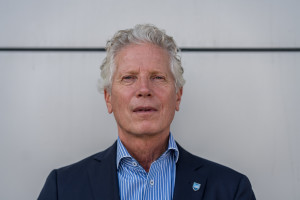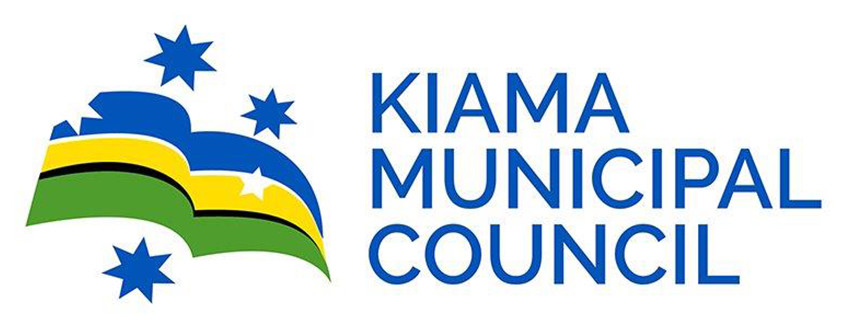In January 2009, Han Berger began a journey which would prove to be one of the greatest challenges in his football career.
He succeeded Rob Baan as Technical Director of the FFA, largely unaware the football culture in Australia was totally underdeveloped compared to his long term European experience.
The man who grew up in the period of the Dutch football renaissance witnessed the golden generation of Cruyff, Neeskens, Rep, Haan,Van Hanagem, Suurbier and Krol to name a few.
They were exciting times in Dutch football when Ajax and Holland dominated European football and they had a great impact on the coaching philosophy of the young Han Berger.
Berger’s greatest legacy for Australian football in his five and a half years as Technical Director of the FFA was the completion of the first national curriculum.
These days he spends most of his time in Holland where he plays an important role on the Dutch national body in guiding and overseeing the direction of technical development.
He also has a football consultancy where he uses his vast experience in coaching to assist the progress of Dutch football.
In this interview with Roger Sleeman, Han Berger discusses his philosophy of football, the evolution of the Dutch game, the legends of his country, the restructure of the Dutch Association and the benefits which have accrued, and the National Curriculum he produced for the FFA.
ROGER SLEEMAN
What was your pathway in football?
HAN BERGER
I was born in Utrecht and played youth football from the age of ten with my local team, Velox, which was one of three professional clubs in the city.
I played till my twentieth birthday when I signed my first professional contract in 1970 at the time the three clubs merged to become F.C. Utrecht.
However, I injured my knee in pre-season training which required a reconstruction which wasn’t successful.
I had a second operation a year later but that didn’t work so I had to stop playing.
Fortunately, before being forced from the game as a player, I completed a physical education degree and as part of the degree, I obtained my A coaching licence by the age of twenty one.
My former coach at Velox decided, that as I was on a contract with F.C. Utrecht and being paid anyway, he offered me the opportunity to coach at the club academy and to act as second assistant coach for the first team.
For four years, I carried out these duties until the head coach was sacked from F.C. Utrecht and I took over as head coach at the age of twenty five which was a record in Dutch football
I remained in the job for seven and a half years and ultimately maintained a head coaching role in the Eredivisie for a total of twenty five years.
After that, I was employed by the KNVB and coached the Dutch u/23’s and u/21’s
Subsequently I returned to Utrecht as technical director, coached two years in Japan, before returning to Holland to take on the technical director’s position at De Graafschap.
It was at this time, I was approached by Guus Hidiink to take up the technical director position at the FFA in 2009.
R.S.
What is your philosophy of football?
H.B.
I’m a typical Dutchman in that I’m not happy with just a result, although we’re in a results oriented environment.
To me it’s the way we achieve the result by dictating and controlling the pace of a game, attacking and putting the opponent under pressure so they make errors, rather than waiting for them to make mistakes.
The first coach at FC Utrecht, Bert Jacobs, who was my role model and mentor, was also about promoting attacking football and entertaining.
R.S.
What are your memories of the great Dutch teams of the 1970’s when football came alive in Holland?
H.B.
During the 60’s, I was fortunate to witness the development of the game because prior to that the Dutch national team wasn’t great.
However, with the cultural shift of the 60’s with a new generation of young people expressing the anti-establishment view, football was a great beneficiary.
There were also influential people like Rinus Michels who was the godfather of Dutch football and was able to cultivate these talented young people with self-will, self expression and indiscipline to channel their abilities in the right direction.
Michels succeeded in creating disciplined teams which succeeded for so many years with Ajax, and Holland when they reached consecutive World Cup finals in 1974 and 1978.
Michels encouraged total football which changed the approach to the game which the players became fully invested in.
Critically, it was the leadership and example set by Johan Cruyff on the pitch that also made it work.
When he was man marked, he just dropped back into the libero role which confused his man marker and also his team-mates would empty in and out of positions.
They were a talented generation with a top coach who allowed self-expression but still controlled the group dynamic with a kind of awareness which could produce extraordinary things.
R.S.
Why was Cruyff so special?
H.B.
Football is about seeing things quickly, providing solutions before others do and executing them.
This was illustrated by the brilliant run Cruyff made to score the first goal in the 1974 World Cup Final against West Germany.
R.S.
A month ago in the Champions League, Ajax scored a 3-3 draw with Bayern Munich in a game they could’ve won easily.
Where is the game at club level now?
H.B.
The landscape is changing continually whereby the Dutch clubs can’t compete financially with other major Leagues, despite the continual supply chain of talented young players.
For example, Frenkie de Jong and Matthijs de Ligt will be lost to Ajax in due course and they’re talking about a $75 million transfer fee for de Ligt.
The gap in finances is clearly emphasised when the bottom club in the EPL receives greater revenues than the total budget of PSV and Ajax.
Consequently, when you look at this financial picture, it was amazing Ajax reached the Europa Cup Final two years ago.
Nevertheless, Ajax keeps losing players but it’s like a factory which keeps producing talent.
R.S.
How good is Frenkie de Jong?
H.B.
De Jong is a special player like Kevin de Bruyne but he plays deeper than the Belgian.
He appears to have so much time on the ball, makes it look so simple and rarely loses the ball as he shields his defence.
R.S.
The Dutch national team performed admirably to qualify for the second stage of the European Nations League last year after the failure to qualify for Russia.
How much can this be attributed to Ronald Koeman’s appointment as manager?
H.B.
Koeman is definitely part of the process and I was fortunate to be involved with his selection.
It was suggested to Koeman, the squad needed to be rejuvenated and long standing servants like Van Persie, Robben and Schneider had to be replaced.
Also, the organisation was changed whereby the national team were brought back to the National Training Centre at Zeiss to a whole new state of the art setup . The hotel is on site and there are several pitches and world standard medical facilities.
Koeman took to the change in a positive manner and brought new players from Dutch clubs competing in Europe and overseas players who are in top teams in Europe.
R.S.
You were largely responsible for the National Curriculum in Australia.
What were you trying to achieve, and has the purpose of the document been fulfilled?
H.B.
The media will always have a critical opinion and once you produce a document like it you become vulnerable.
Reading it the day after it was issued, I found I would’ve omitted some items and included others.
Writing the curriculum is easy; rolling it out is another matter.
My opinion is, that as long as Australia is unwilling or unable to invest to bring the curriculum to life and people leave the FFA because there’s no money for basic requirements like training camps, the game will struggle.
What we did in Holland two years ago was to make the game a real business by appointing football people for the benefit of the sport which is my main concern for the Australian game.
R.S.
What is your role as Technical Director at the Royal Dutch Football Association (KNVB)?
H.B.
Two years ago, a restructure of the body was instigated involving the top three layers.
The traditional Board of Directors was changed to a professional board of five people with football expertise.
I hold the position responsible for the technical function of the organisation and two technical director’s report to me who fulfil the roles of high performance and technical development.
Also with the changes, the coaching staff was changed and reshuffled.
Although my position is fulltime, like the other directors I have executive powers and hands on involvement.
I also spend time with the national team when required.
R.S.
As a technical director, what is your view of the prevalence of one sided players which is such a feature of Australian football?
H.B.
It’s a real problem, so at the Sydney FC Academy, we have a system where players wear dark blue socks on their weaker foot and light blue on their stronger foot.
When they believe they’ve mastered both feet, they have a test and if successful they’re allowed to wear two light blue socks.
This method was adapted from Bayern Munich and it’s also in the National Curriculum.
R.S.
What is your role on the Board at Sydney F.C.?
H.B.
As you know, due to my commitments in Holland, I will only be visiting Sydney for one month a year in the future.
Basically, I’m trying to impart my technical expertise to the club, particularly in the Academy area and also bring best practice to youth development.
R.S.
How did you view Bert van Marwijk’s influence on Australia’s performance in Russia?
H.B.
That can be answered by accepting the Socceroos played to the best of their ability but they deserved more against France.
The scoring problem is still there when they play better class opposition and the failure to progress beyond the group stage since 2006, is a major reflection of this situation.




